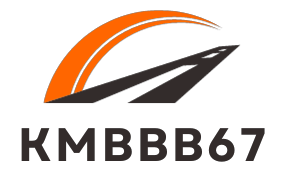How Hubet is Changing the Way We Think About Online Learning
In recent years, the landscape of education has dramatically shifted, particularly in the realm of online learning. What was once seen as a supplementary resource for traditional classrooms is now a core component of how people learn. hubet Among the most innovative players in this field is Hubet, a platform that’s redefining the way we approach education in the digital age.
The Rise of Online Learning
The COVID-19 pandemic served as a catalyst for the rise of online education. Schools and universities quickly transitioned to virtual classrooms, and both students and educators adapted to this new way of learning. However, as time went on, it became clear that online learning, while effective in many ways, still faced several challenges—lack of interaction, difficulty in tracking progress, and the feeling of isolation, to name a few.
Enter Hubet.
Hubet: A Fresh Approach to Online Learning
Hubet has emerged as a pioneer in reshaping online education by introducing a unique, student-centered approach. The platform doesn’t just focus on delivering content but on creating an immersive and interactive experience that keeps learners engaged and motivated. Here’s how Hubet is changing the way we think about online learning:
- Personalized Learning Paths Unlike traditional learning systems that follow a one-size-fits-all approach, Hubet offers personalized learning paths that adapt to the individual needs of each student. Whether you’re a beginner or an advanced learner, the platform adjusts its content to ensure you’re always challenged, but never overwhelmed. This adaptability helps learners progress at their own pace, leading to a deeper understanding of the material.
- Gamification for Engagement One of the main reasons many people struggle with online learning is that it can feel monotonous. Hubet addresses this issue with gamification. By incorporating game-like elements—such as badges, points, and leaderboards—Hubet creates a fun, competitive environment that motivates students to continue learning. It’s not just about completing assignments; it’s about earning rewards and leveling up in the process.
- Interactive Community and Collaboration Online learning can sometimes feel isolating, but Hubet has built a thriving community of learners. The platform encourages collaboration, whether through group projects, peer feedback, or live discussions. This social aspect fosters a sense of belonging and allows learners to share ideas, discuss concepts, and learn from one another in ways that traditional classrooms often can’t replicate.
- Real-Time Progress Tracking Hubet offers real-time feedback and progress tracking, giving students a clear understanding of how they’re performing. This transparency helps identify areas where students may be struggling and allows them to focus their efforts accordingly. It also provides educators with valuable insights into student performance, enabling them to tailor their support to individual needs.
- Focus on Lifelong Learning Hubet’s impact extends beyond just academic education. The platform promotes lifelong learning by offering courses on a wide range of topics—skills that are valuable both professionally and personally. Whether it’s mastering coding, learning a new language, or improving leadership skills, Hubet helps individuals continue their education long after they’ve left the traditional school system.
The Future of Online Learning with Hubet
As online learning continues to evolve, platforms like Hubet are at the forefront of driving change. By focusing on personalization, engagement, and community, Hubet is making learning more accessible, enjoyable, and effective. The shift from traditional, rigid learning models to dynamic, student-centered approaches is not only changing how we learn but also shaping the future of education.
In conclusion, Hubet is more than just an online learning platform. It’s a new way of thinking about education—one that prioritizes the needs and experiences of the learner, offering a future where learning is not just about acquiring knowledge but about engaging with it in a meaningful and impactful way.
